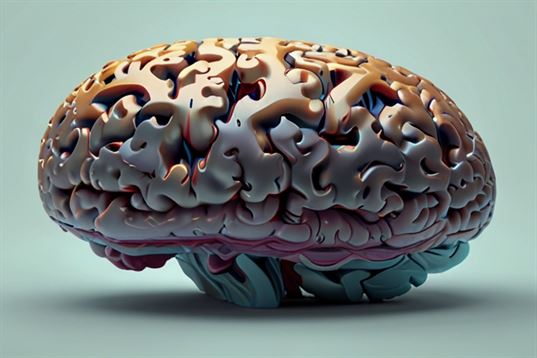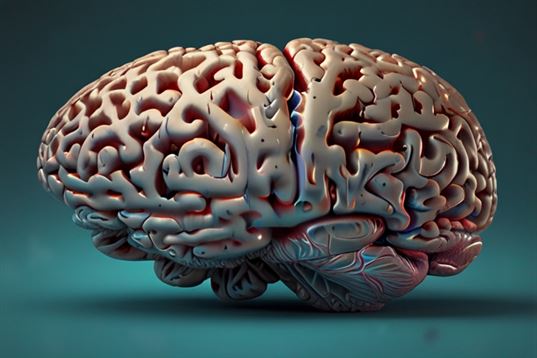As we age, maintaining a sharp memory can feel like an uphill battle. Forgetting names, misplacing keys, or struggling to recall an important date may seem minor at first, but over time, these memory lapses can affect daily life. While genetics and age-related changes play a role, your lifestyle choices significantly influence your brain’s ability to stay sharp.
Did you know that certain everyday habits may be sabotaging your memory without you even realizing it? The good news is that with a little awareness and some lifestyle adjustments, you can protect your cognitive health and ensure that your mind remains as sharp as ever.
In this article, we dive deep into nine behaviors that could be damaging your memory, how they impact your brain, and what you can do to foster long-term mental clarity.
In This Article
- 1 1. Skipping Physical Activity
- 2 2. Poor Sleep Hygiene
- 3 3. Ignoring Mental Stimulation
- 4 4. Unhealthy Eating Habits
- 5 5. Multitasking Too Much
- 6 6. Neglecting Social Connections
- 7 7. Overindulgence in Alcohol
- 8 8. Chronic Stress and Anxiety
- 9 9. Not Drinking Enough Water
- 10 Key Takeaways
- 11 Conclusion: Take the First Step Today!
1. Skipping Physical Activity
Lack of exercise doesn’t only affect your waistline; it directly impacts your brain health. Physical activity plays a critical role in maintaining good blood circulation, which ensures that oxygen and nutrients reach the brain. Moreover, exercise promotes the release of brain-derived neurotrophic factor (BDNF), a protein essential for creating and maintaining neurons.
The Science Behind It
Studies have consistently shown that regular physical activity can slow down brain aging and reduce the risk of developing Alzheimer’s disease and other forms of dementia. When you’re sedentary, your brain receives less stimulation, which can lead to cognitive decline over time.
Practical Steps to Get Moving
- Start small: Take a 10-minute walk after each meal.
- Incorporate strength training: Lifting weights not only builds muscle but also enhances brain function.
- Explore mind-body exercises like yoga and tai chi, which improve coordination and memory.
2. Poor Sleep Hygiene
Sleep isn’t just rest for the body—it’s a crucial time for your brain to consolidate memories and process information. When you consistently skimp on sleep, you deprive your brain of the time it needs to rejuvenate and perform optimally.
The Science Behind It
During the deepest stages of sleep, your brain clears out toxins, such as beta-amyloid proteins, which are linked to Alzheimer’s. A lack of sleep disrupts this detoxification process, leading to cognitive impairments.
Practical Steps for Better Sleep
- Stick to a sleep schedule: Go to bed and wake up at the same time daily, even on weekends.
- Limit screen time: Avoid electronics at least an hour before bed as blue light disrupts melatonin production.
- Create a bedtime routine: Reading, meditating, or taking a warm bath can signal your body that it’s time to wind down.
3. Ignoring Mental Stimulation
Your brain is like a muscle; the more you use it, the stronger it gets. A lack of mental engagement can lead to cognitive stagnation, making it harder for you to retain information.
The Science Behind It
Mental stimulation encourages the growth of new neural pathways, which enhances memory and overall cognitive function. In contrast, monotonous routines without intellectual challenges can leave the brain unprepared for new tasks.
Ways to Stay Mentally Sharp
- Pick up hobbies: Learning to play a musical instrument or painting stimulates different areas of your brain.
- Engage in puzzles: Sudoku, crosswords, and logic games are fantastic for improving memory and problem-solving skills.
- Read diverse materials: Challenge yourself with books on unfamiliar topics or new genres.
4. Unhealthy Eating Habits
The saying “you are what you eat” is especially true for your brain. A diet filled with processed foods, sugary treats, and unhealthy fats can impair cognitive abilities over time.
The Science Behind It
Your brain thrives on antioxidants, healthy fats, vitamins, and minerals. Diets high in sugar and trans fats lead to inflammation and oxidative stress, which damage brain cells. Additionally, deficiencies in nutrients like vitamin B12, omega-3s, and magnesium have been linked to memory loss.
Foods for Brain Health
- Eat the rainbow: Include colorful fruits and vegetables such as berries, spinach, and bell peppers.
- Add healthy fats: Avocados, nuts, seeds, and fatty fish like salmon support cognitive function.
- Limit sugar and processed carbs: Opt for whole grains like quinoa and oats instead of white bread and pastries.
5. Multitasking Too Much
In today’s fast-paced world, multitasking feels like a necessity, but it’s actually a productivity and memory killer. Constantly switching between tasks prevents your brain from focusing deeply, which is essential for memory formation.
The Science Behind It
Multitasking overloads your prefrontal cortex, the part of the brain responsible for attention and working memory. This leads to incomplete processing of information, making it harder to recall later.
How to Improve Focus
- Use the Pomodoro Technique: Work for 25 minutes on one task, then take a 5-minute break.
- Turn off distractions: Silence notifications and close unnecessary tabs while working.
- Prioritize tasks: Make a to-do list and tackle the most important items first.
6. Neglecting Social Connections
Humans are social creatures, and meaningful relationships play a vital role in mental health. Isolation or a lack of regular interaction can lead to feelings of loneliness, which have been linked to cognitive decline.
The Science Behind It
Research has shown that individuals with robust social networks have a lower risk of dementia. Conversations and interactions stimulate the brain and improve emotional regulation.
Ways to Stay Connected
- Schedule regular calls with loved ones.
- Join local clubs or hobby groups.
- Volunteer for causes that interest you to meet like-minded people.
7. Overindulgence in Alcohol
A drink or two occasionally might not harm you, but excessive alcohol consumption damages brain cells and affects areas critical for memory and decision-making.

The Science Behind It
Chronic alcohol use shrinks the hippocampus, the region of the brain responsible for memory and learning. Over time, this can lead to long-term memory loss and cognitive impairments.
How to Moderate Alcohol Consumption
- Set limits: Follow the recommended guidelines—one drink per day for women and two for men.
- Opt for alcohol-free alternatives: Mocktails and non-alcoholic wines are great options.
- Stay hydrated: Drink a glass of water between alcoholic beverages to minimize effects.
8. Chronic Stress and Anxiety
Stress is an unavoidable part of life, but chronic stress can be detrimental to your brain. Persistent anxiety floods your body with cortisol, which disrupts memory formation and retrieval.
The Science Behind It
High cortisol levels over an extended period damage the hippocampus and prefrontal cortex. These areas are essential for learning, memory, and emotional regulation.
How to Manage Stress
- Practice mindfulness: Meditation and deep breathing help reduce cortisol levels.
- Get active: Exercise is a natural stress reliever.
- Seek support: Talk to a friend or a therapist to address underlying causes of anxiety.
9. Not Drinking Enough Water
Your brain is approximately 75% water, and even mild dehydration can affect its performance. Without adequate hydration, your brain struggles to focus and store information.
The Science Behind It
Dehydration reduces blood flow and oxygen to the brain, leading to fatigue and cognitive impairments. It also affects the production of neurotransmitters, which are crucial for communication between brain cells.
Tips to Stay Hydrated
- Carry a reusable water bottle: Keep it with you at all times as a reminder to drink.
- Eat water-rich foods: Cucumbers, watermelon, and lettuce are excellent options.
- Set reminders: Use apps or alarms to track your water intake.
Key Takeaways
- Brain health is in your hands: The habits you cultivate today will determine the sharpness of your memory tomorrow.
- Prevention is better than cure: Avoiding harmful behaviors now can delay or prevent cognitive decline.
- It’s never too late to start: Small changes can yield big benefits over time.
Conclusion: Take the First Step Today!
The road to a sharper memory starts with awareness. Which of these habits resonate with you the most? Have you noticed any changes in your memory that might be linked to one of these behaviors?
Start small. Pick one habit to work on this week. Share your progress in the comments below or join our discussion on how to implement brain-healthy practices. Let’s take this journey together and create a community dedicated to lifelong cognitive wellness!
Your future self will thank you for the steps you take today.





